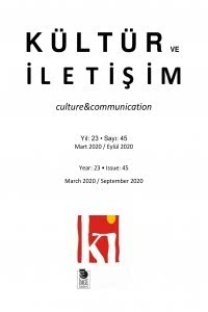Who does Scare of the People? Rhetoric of Personalisation, Reduction and Dilemma in the Grand National Assembly of Turkey: 1987 Constitutional Amendment Negotations
Who does Scare of the People? Rhetoric of Personalisation, Reduction and Dilemma in the Grand National Assembly of Turkey: 1987 Constitutional Amendment Negotations
Parliaments are spaces of delibaretions that gathers nation through its representatives in modern democracies. These deliberations provides us a general frame, by which we can infer the way the important socio-political problems are mis represented semantically and symbollicaly. As a result of this feature, the analysis of the parliamentary negotiations has increasingly become a new research area during the last two decades. This study analyses the negotions at the Grand National Assembly of Turkey on the law no. 3361 in 1987 which made the first amendments in the Constitution of 1982. The law decreased the voting age from 21 to 20, increased the numbers of parliamentarians from 400 to 450, enhanced the position of the assembly vis a vis the president in terms of procedure of consitutional amendments and repealed the political bans those enacted by the National Security Council after the 1980 coup d’etat. So, the law brought about a debate on the constitution, referandum, democratic rights and freedoms and democratic functions of the referandums in Turkey in a transition to democracy following a coup detat. In this study, minutes of the proceedings of the grand assembly were analysed through critical rhetorical analysis to make inferences about the political climate and democratic horizon of that period. During the analysis, the basic arguments and the rhetorical strategies of the sides of the debate in the grand assembly are defined. The analysis shows that parties of the debate in the grand assembly constructed their arguments with the help of three rhetorical strategies. First strategy is ‘personalisation’ which relates the topic with the interests and intentions of the “individuals” by ignoring its political and philosophical aspects. The second strategy is the “reduction” of the topic to a specific issue. Third one is the strategy of ‘dilemma’ which obliges the opponent to ratify the articles of the law that they oppose in return for repealing the political bans on their leaders. Three rhetorical strategies determinant within the debates not only shows the constraints of the democratic horizon of the deliberations in the Grand National Assembly but also the distance of the policy making processes from pluralist and democratic participation in Turkey.
- ISSN: 1301-7241
- Yayın Aralığı: Yılda 2 Sayı
- Başlangıç: 1998
- Yayıncı: İmge Kitabevi Yayınları
Sayıdaki Diğer Makaleler
Ceren Salmanoğlu EROL, Tuncay ŞUR
Versions of Minor Literature: Two Contemporary Cases from Turkish Film
Sabiha Zekeriya Sertel: Erken Cumhuriyet Döneminde Kadın, Muhalefet ve Basın
Yedinci Sanat Aylık Sinema Dergisinde Film Eleştirisinin Ana Çizgileri
Popüler Tarih Dizileri Bağlamında Televizyonda Tarih İnşası ve Politik Tartışmalar
“Özgürlük için Basın” II. Ulusal Konferansı’nın Ardından Notlar
Images of Suffering: Between the Obligation to Display and the Difficulty of Concealing
